Grimshaw models Shenzhen airport transport hub on mangrove trees
Mangrove trees informed the design of the Shenzhen Airport East Integrated Transport Hub, which architecture firm Grimshaw has won a competition to build at an airport in China.
The large transport interchange will form part of the Shenzhen Bao'an Airport and is hoped to become a landmark and gateway for the wider Greater Bay Area, which is home to nine cities.
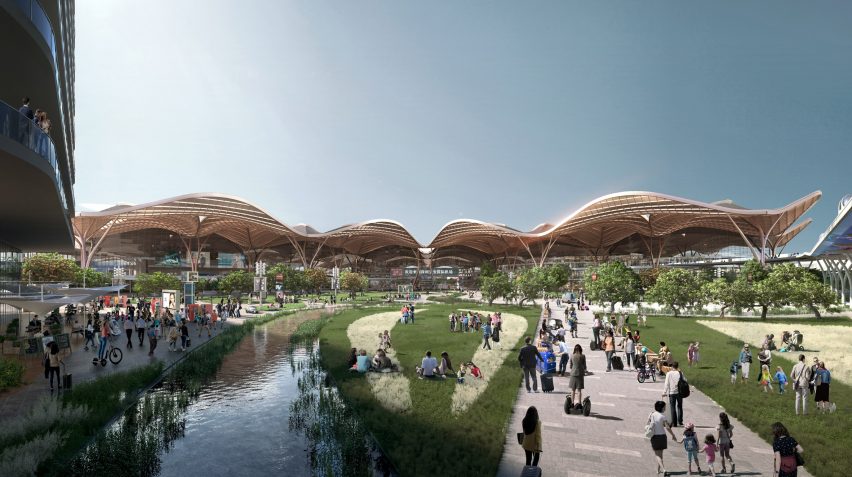
Grimshaw's design, characterised by sweeping columns and an undulating roofscape, was modelled on mangrove trees in honour of their symbolic significance in Shenzhen.
According to the studio, it is also an attempt to replicate the highly efficient, natural forms of the tree species, which it describes as "one of the planet's most effective carbon absorbers".
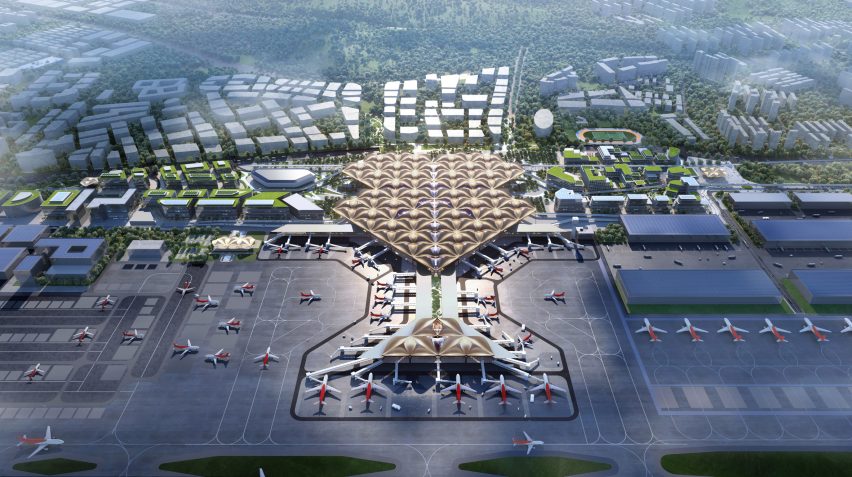
"We are often inspired by the transfer of geometries and forms from nature into architecture," explained Jolyon Brewis, partner at Grimshaw.
"We have applied this approach to the master plan and interchange design at Shenzhen Bao'an Airport which is directly inspired by the mangrove tree. Not only does this have symbolic value as an important tree to Shenzhen, but it has led us to a solution for the building that is highly efficient."
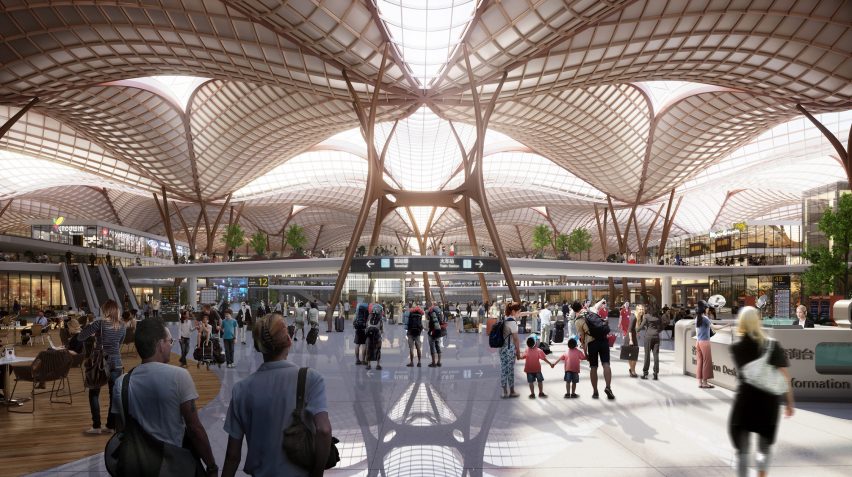
Grimshaw's design was the winning entry of an international competition for the Shenzhen Airport East Integrated Transport Hub, chosen over entries by the likes of Zaha Hadid Architects, Foster + Partners and BIG.
It was developed with a wider competition team consisting of Mott MacDonald, China Aviation Planning and Design Institute, Beijing Urban Construction Design and Development Group, Schlaich Bergermann Partner, Atelier Ten and Gross Max.
Once complete, the interchange hub is expected to accommodate thousands of daily commuters moving between high-speed rail and other means of public transport.
It will also connect with Shenzhen Bao'an International Airport's terminals, which the studio claims will make it "one of the most integrated transport interchanges in the world".
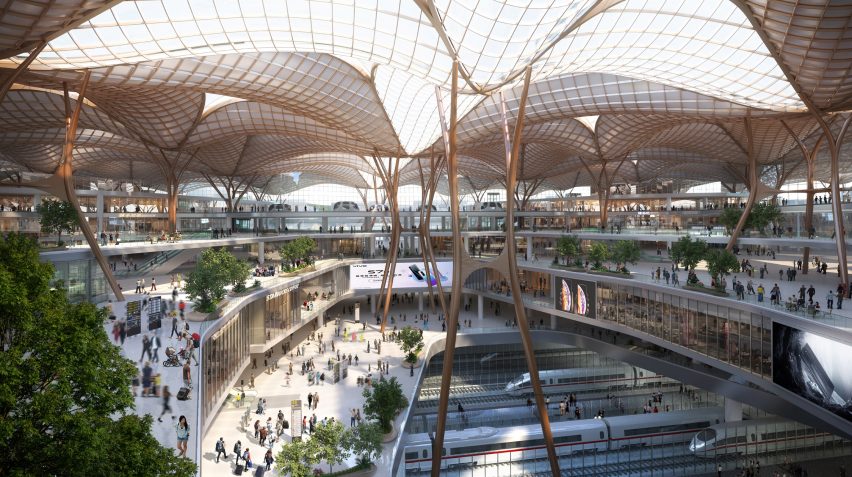
Inside, visitors to Shenzhen Airport East Integrated Transport Hub will be guided through arrival and departure spaces that are naturally lit and filled with sweeping columns that evoke tree roots.
There will be spaces both above and below ground in a nod to mangrove trees, which have roots that weave between air and water.
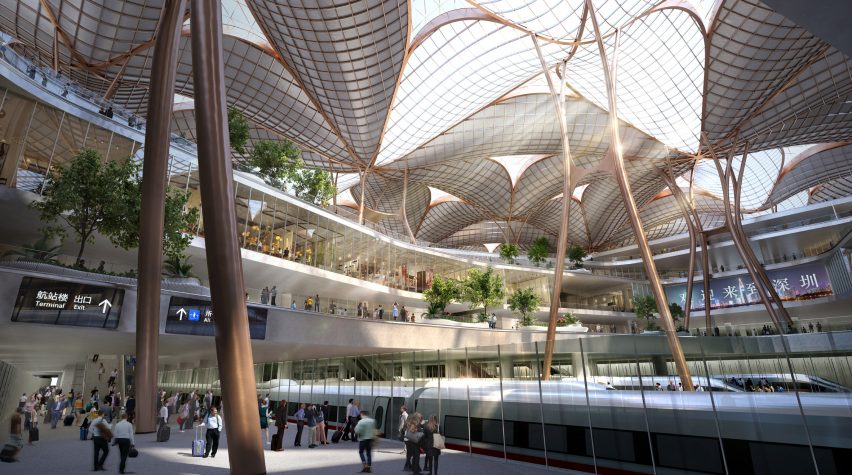
The transport hub will be developed by Grimshaw to achieve LEED Platinum and Chinese 3 Star ratings, which are the highest certifications awarded in terms of energy performance by the two green building standards.
According to the studio, this will be achieved in part through the efficient use of materials – such as the repetition of components.
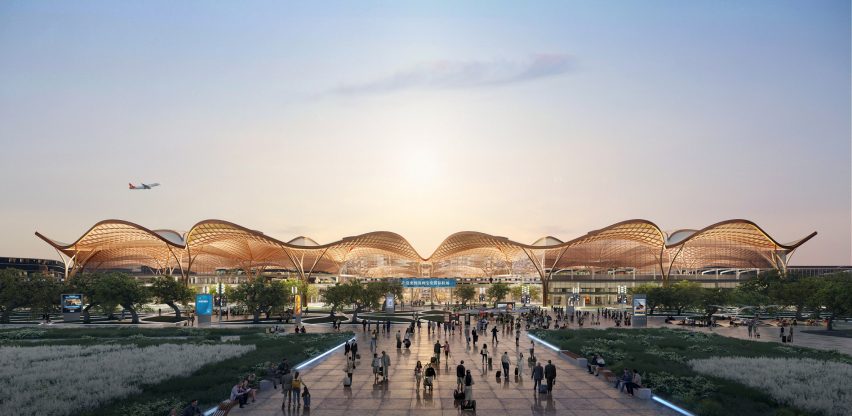
Shenzhen Airport East Integrated Transport Hub is the latest in a string of buildings being developed in Shenzhen by a list of illustrious architects.
This includes 10 cultural buildings that are being created for the major Shenzhen Ten Cultural Facilities of New Era masterplan. Among them are a music conservatory wrapped in decorative louvres, a pebble-shaped science museum by Zaha Hadid Architects and a giant opera house on the waterfront Jean Nouvel.
Elsewhere, Grimshaw is currently developing a carbon-neutral terminal for Delhi Noida International Airport in India, alongside Nordic Office of Architecture, Haptic and STUP.
Its plans to expand London's Heathrow airport have also been given the go-ahead once more, after an argument that the expansion would undermine the UK's commitment to the Paris Agreement was overturned.
Visuals are courtesy of Grimshaw.